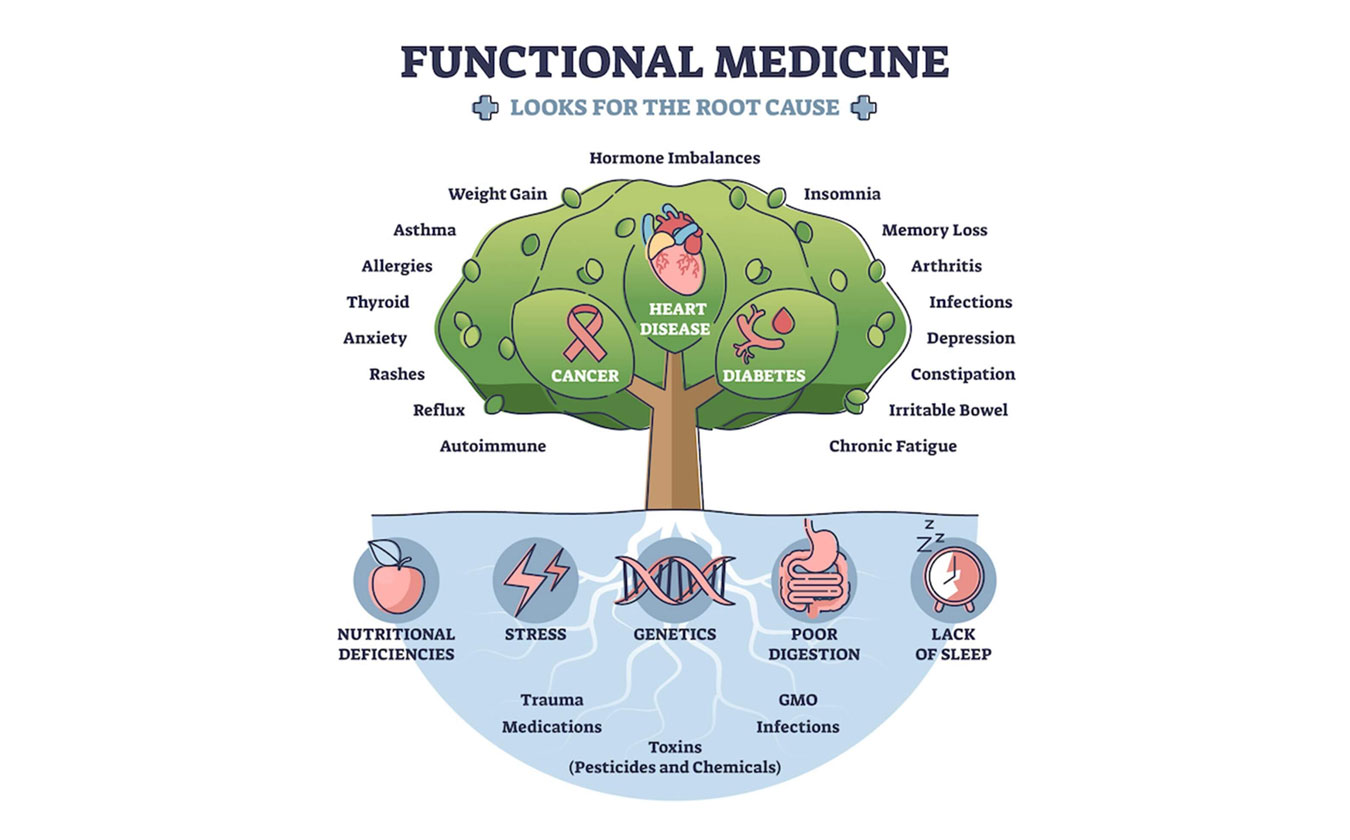What are hormones?
Hormones are chemicals that coordinate different functions in your body by carrying messages through your blood to your organs, skin, muscles, and other tissues. These signals tell your body what to do and when to do it. Hormones are essential for life and your health. Scientists have identified over 50 hormones in the human body so far. Hormones and most of the tissues (mainly glands) that create and release them make up your endocrine system. Hormones control many different bodily processes, including:
- Metabolism
- Homeostasis (constant internal balance),
such as blood pressure and blood sugar
regulation, fluid (water) and electrolyte
balance and body temperature - Growth and development
- Sexual function
- Reproduction
- Sleep-wake cycle
- Mood
Hormones play a vital role in our bodies, but we don’t tend to give them much thought until we notice something has changed dramatically, such as going through menopause. However, numerous hormones operate continuously, working to maintain balance and regulate various bodily functions throughout our lives. As mentioned above, 50 different hormones have been identified and here are 6 that you may have heard about and a little about the importance of each one:
1. Estrogen:
A group of hormones primarily responsible for the development and regulation of the female reproductive system. It plays a role in menstrual cycles, bone health, and various other physiological processes.
2. Testosterone:
Found in both males and females. Although it is typically associated with male characteristics, it is also important for women for bone density, muscle mass, cognitive function, mood, sexual function, and energy.
3. Insulin:
Produced by the pancreas to help regulate blood sugar levels. It facilitates the absorption of glucose into cells for energy production and storage, playing a critical role in metabolism and preventing hyperglycemia (high blood sugar) and hypoglycemia (low blood sugar). After menopause, changes in your hormone levels can trigger fluctuations in your blood sugar level.
4. Thyroid Hormones (T3 and T4: Thyroid hormones, including triiodothyronine (T3) and thyroxine (T4), are produced by the thyroid gland. They regulate metabolism, growth, and energy expenditure throughout the body, influencing heart rate, body temperature, and other vital functions. Menopause can affect thyroid function, and a thyroid disorder can produce some of the same symptoms as menopause such as hot flashes and night sweats.
5. Cortisol:
Cortisol is a steroid hormone produced by the adrenal glands in response to stress. It helps regulate metabolism, immune function, blood pressure, and the body’s response to stressors. Chronically elevated cortisol levels can lead to health issues like weight gain, immune system suppression, and mood disorders.
6. Progesterone:
Progesterone is a hormone involved in the menstrual cycle, pregnancy, and embryo development. It helps prepare
the uterus for implantation and supports pregnancy by maintaining the uterine lining. Progesterone can also have sleep-promoting effects, so if you are low in this hormone, you may experience difficulty with sleep.
Here are 10 tips for managing hormones during menopause:
1. Eat a Balanced Diet:
Focus on a diet rich in whole foods such as fruits, vegetables, whole grains, lean proteins, and healthy fats. Include foods high in calcium and vitamin D for bone health, such as dairy products, and leafy greens. Reduce/eliminate ultra-processed foods because they are calorie dense and nutrient poor.
2. Stay Hydrated:
Drink plenty of water throughout the day to stay hydrated and support overall health. Dehydration can worsen menopausal symptoms like hot flashes and mood swings.
3. Stress Management:
Practice stress-reducing techniques such as meditation, breathing exercises, yoga, any activities you enjoy. Stress management can help reduce the impact of hormonal
fluctuations on mood and wellbeing.
4. Regular Exercise:
Regular physical activity can support hormone balance, manage weight, improve mood, and promote overall health. Aim for a combination of cardio, strength training, and flexibility exercises.
5. Limit Alcohol and Caffeine:
Alcohol and caffeine consumption can worsen menopausal symptoms such as hot flashes and sleep disturbances. Reduce or omit your intake of these and see if you notice a difference.
6. Quit Smoking:
If you smoke, quitting can have numerous health benefits, including improved hormone balance and reduced risk of heart disease and osteoporosis.
7. Get Adequate Sleep:
Prioritize sleep by maintaining a regular sleep schedule, creating a comfortable sleep environment, and practicing relaxation
techniques before bedtime. Aim for 7-9 hours of quality sleep each night.
8. Hormone Replacement
Therapy (HRT):
Discuss the potential benefits and risks of HRT with your healthcare provider. HRT can help manage menopausal symptoms by replacing declining hormone levels, but it’s important to weigh the pros and cons based on your individual health profile.
9. Herbal Remedies:
Some herbal supplements, such as black cohosh, red clover, and evening primrose oil, have been used for many years to alleviate
menopausal symptoms. Consult with a healthcare provider before starting any herbal remedies to ensure safety and efficacy.
10. Social Connection:
Maintain strong social connections with friends, family, and support groups. Sharing experiences and seeking emotional support can help navigate the physical and emotional
changes associated with menopause
It’s important to work with your healthcare provider to develop a personalized approach to managing menopausal hormones based on your specific symptoms, health history, and preferences. If your primary care physician or Ob/Gyn isn’t helpful, consider seeking care from a functional medical doctor or naturopathic doctor who specializes in women’s hormones.









